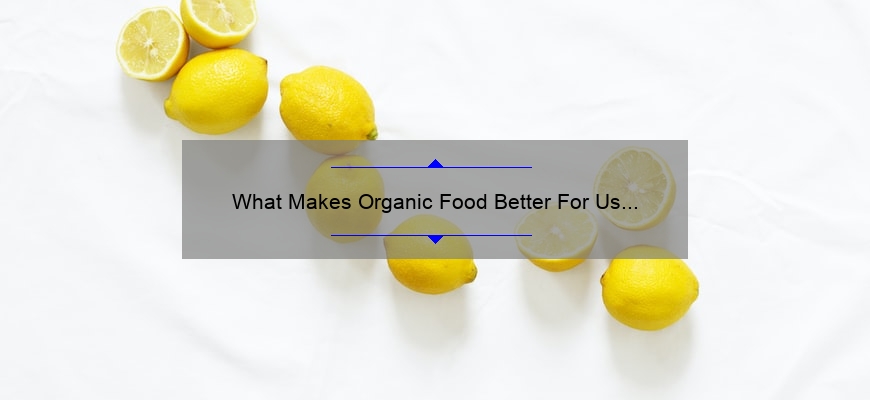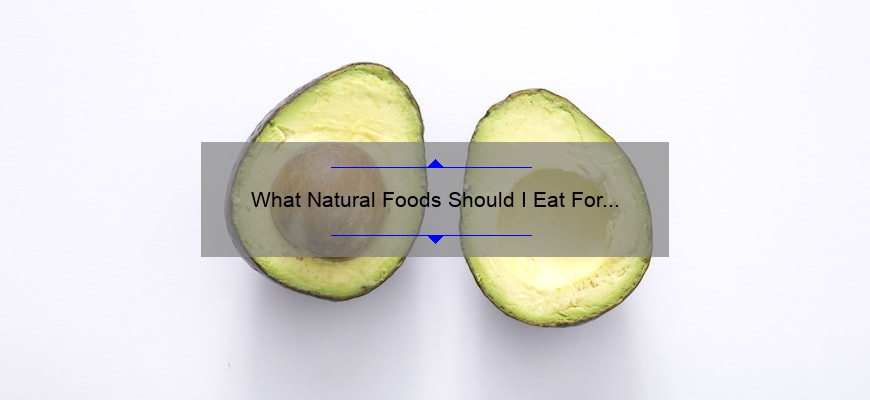Health benefits
Organic foods have a higher concentration of essential nutrients and are free of pesticides, antibiotics, and GMOs. Conventional crops are treated with pesticides that have not been studied for their impact on human health, but they are believed to increase the risk of heart disease, cancer, and Alzheimer’s disease. Organic foods also contain more essential nutrients your body needs to stay healthy, including vitamins A, D, and E. These nutrients protect your body from cancer, heart disease, and diabetes.
Organic foods are also higher in antioxidants. Studies have shown that organically grown fruits and vegetables contain up to 70% more antioxidants than conventionally grown foods. They also lower the risk of cancer and type 2 diabetes by up to 25%. In addition, organic foods are free from genetically modified organisms, sewage sludge fertilizers, and growth hormones.
Organic crops are also lower in cadmium, a trace mineral that accumulates in your body. Organic produce also contains more omega-3 fatty acids. A study published in the British Journal of Nutrition in 2016 revealed that organic products have 50% higher levels of omega-3 fatty acids than conventionally grown foods. And a six-year study published in the Journal of Agricultural and Food Chemistry found that organic onions had 20 percent higher levels of antioxidants.
Organic foods contain many other nutrients that are vital to human health. For example, they are rich in antioxidants, which are essential for improving older adults’ health. Organic food also helps preserve biodiversity and promotes ecological balance.
Environmental benefits
Organic foods are an excellent alternative to conventional foods. Many have health benefits and are also free from pesticides and chemicals. They are also better for the environment, producing fewer carbon emissions. Organic foods are also safer for farmers and the environment. Hence, American consumers need to switch over to organic products.
In addition to health benefits, organic foods are better for the environment. Animal products are believed to be more damaging to the environment than plant-based foods. Livestock farming uses energy, contributes significantly to greenhouse gas emissions, and destroys natural habitats. Furthermore, it reduces the availability of oxygen in the water. In addition, organic farming practices reduce the risk of water pollution.
Organic farming also limits the use of synthetic pesticides, which means that the residues in food are lower. This also helps prevent airborne contamination. By contrast, conventionally farmed produce contains about 38% of pesticides. Organic farming practices use natural cycles to control pests and produce healthy foods.
Organic farming also reduces pollution caused by fertilizers. Chemical fertilizers are toxic and can harm groundwater and soil. As a result, organic farming does not produce nitrogen runoff, which pollutes our water bodies and disturbs the marine environment. Organic farming also helps preserve local wildlife by not using chemical fertilizers, which kill the soil and destroy natural habitats.
Despite the many benefits, organic farming is not without problems. Many countries do not have adequate organic farming standards, making it difficult for farmers to comply. This results in inconsistent enforcement of organic regulations.
Nutrient content
Organic foods have a higher antioxidant content, which protects our cells from damage. Some animal studies have shown that eating organic foods improves the immune system and growth. Chickens fed organic food had lower body weight gain and more robust immune systems than that fed conventional food. However, one 2014 observational study of 623,080 women found no significant difference in cancer risk among those who ate organic foods or those who did not. This suggests that more studies are needed to determine the actual benefits of organic food.
Another study analyzed 162 peer-reviewed studies that examined the nutritional value of organic and conventional foods. The researchers compared nutrient content, pesticide content, and bacterial contamination. Organic foods contained more nutrients and phosphorus than traditional foods, but there was no significant difference in vitamin content. Organic crops had higher amounts of protein, phosphorous, and fat than conventional foods. Organic milk also contains more omega-3 fatty acids than conventional milk.
Organic foods are often more expensive than conventional foods, but the benefits far outweigh the costs. Organic foods are associated with less environmental impact, which is an additional benefit. Furthermore, organic food has been shown to have a higher level of antioxidants than conventional foods. Organic food is also associated with excellent nutrient content, but these effects are not as significant as some belief.
Organically grown fruits and vegetables contain more antioxidants. This is equivalent to eating a second or third portion of fruit and vegetables daily. Furthermore, organic foods don’t contain chemicals like herbicides or pesticides. Organic crops naturally produce their antioxidants and protective compounds. In addition, they tend to be free of nitrates, which are associated with an increased risk of cancer.
Cost
Organic foods are more expensive than conventional foods, but the price difference isn’t always significant. The price difference is due in part to higher certification fees, which are comparable to other food safety programs. In addition, organic certification requires more documentation and is more expensive for smaller, diverse farms. Organic certification costs vary by product category, as each type must be certified separately. Regardless of price, choosing the most natural, nutrient-dense options is essential.
The price difference between conventional and organic foods has increased over the past few years. In the past few years, prices of traditional foods have increased by 13.9%, while prices of organic foods have risen by only 1.6%. The price difference is even more significant in organic vegetables and fruits. For example, a single organic pound of sweet onions costs 12 cents versus nine percent more when compared to conventionally grown sweet onions.
Another factor contributing to the higher price of organic food is the shortage of organic farming inputs. Organic farmers must follow strict pesticide use rules and charge more for their products to compensate for the higher cost of the information. Additionally, farmers must pay a USDA fee to label their products as organic, which increases their prices even further.
In the United States, the cost of organic products is on the rise, mainly due to the price of fertilizers. Organic food prices may eventually shrink as demand increases and supply catches up. In addition, a shortage of labor and shipping containers limits the growth of the organic food market.
Pesticide residues
One study found lower residue levels in organic foods than in conventional foods. The research was based on data collected by the United States Department of Agriculture between 1994 and 1999, combined with data from the California Department of Pesticide Regulation. In total, there were 94,000 food samples tested. Of those, 1,291 came from organically grown foods.
The USDA tests produce pesticide residue levels, but not all types are tested. They use a subset of crops commonly consumed by infants and children. In addition, some crops, like pineapple, are not tested. And although it is difficult to determine which product is free of pesticides, the USDA’s tests are excellent indicators of the amount of residue we’re exposed to.
The Environmental Working Group’s 2022 Shopper’s Guide to Pesticide Residues in Produce highlights produce that may be contaminated with pesticides. The “Dirty Dozen” are the most polluted fruits and vegetables. According to the list, the most pesticide-contaminated foods are strawberries, bell/hot peppers, celery, kale, peaches, nectarines, cherries, and spinach.
The limits for pesticide residues are set to protect the public from exposure to toxic chemicals. The government will only take action if the level of residues exceeds a specific threshold. In other words, if you consume too much of the toxic substance, it will cause harm to your health.
The American Council on Science and Health (ACSH) is a prominent opponent of organic agriculture and receives 40 percent of its funding from the industry. However, the Environmental Protection Agency (EPA) has been working for years to reduce pesticide residues in food. While the study’s findings may be wrong on many fronts, the overall results show that organic foods are no more unsafe than conventional foods.



